- Details
- Hits: 5283
Station: Hudson, MI
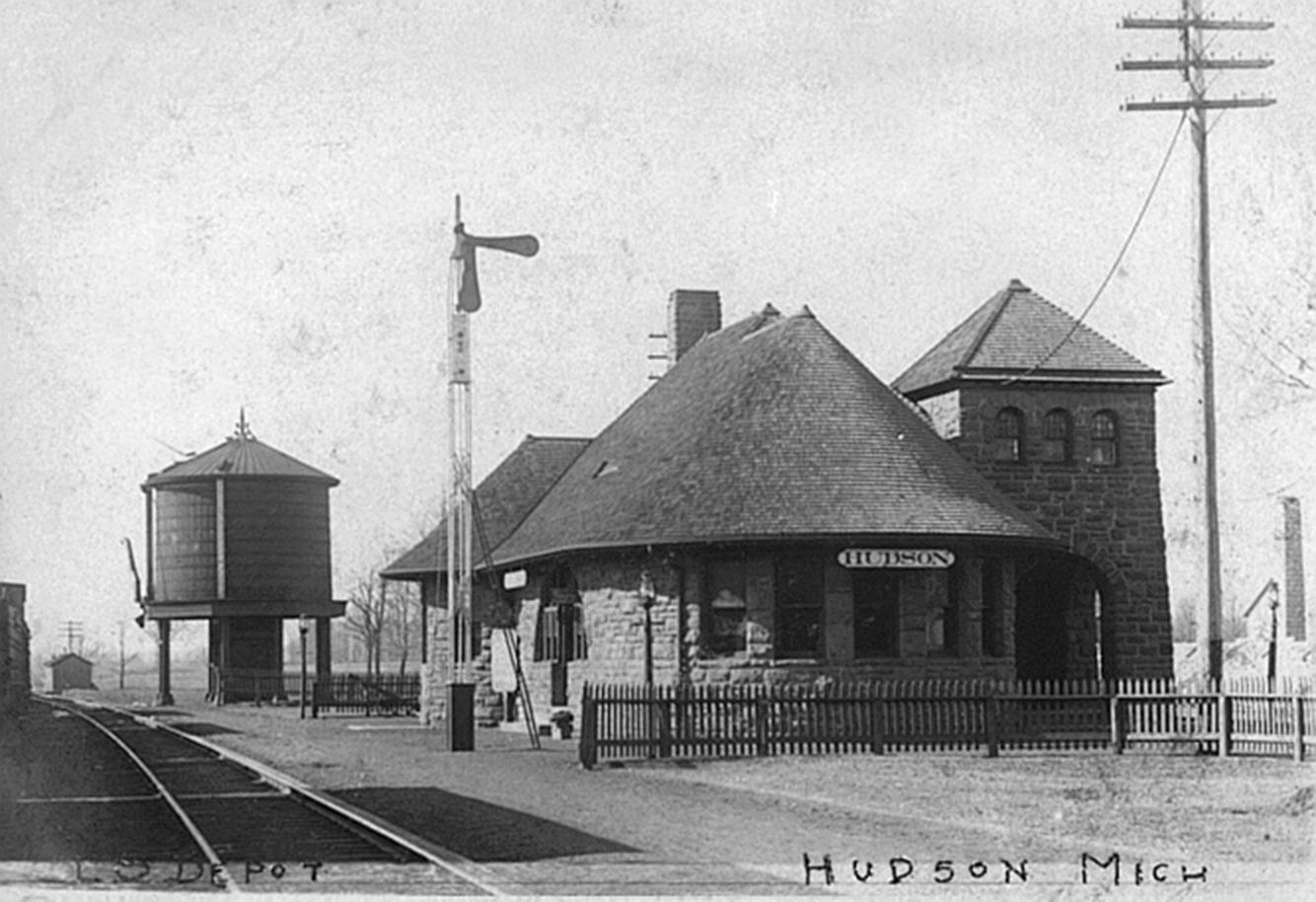
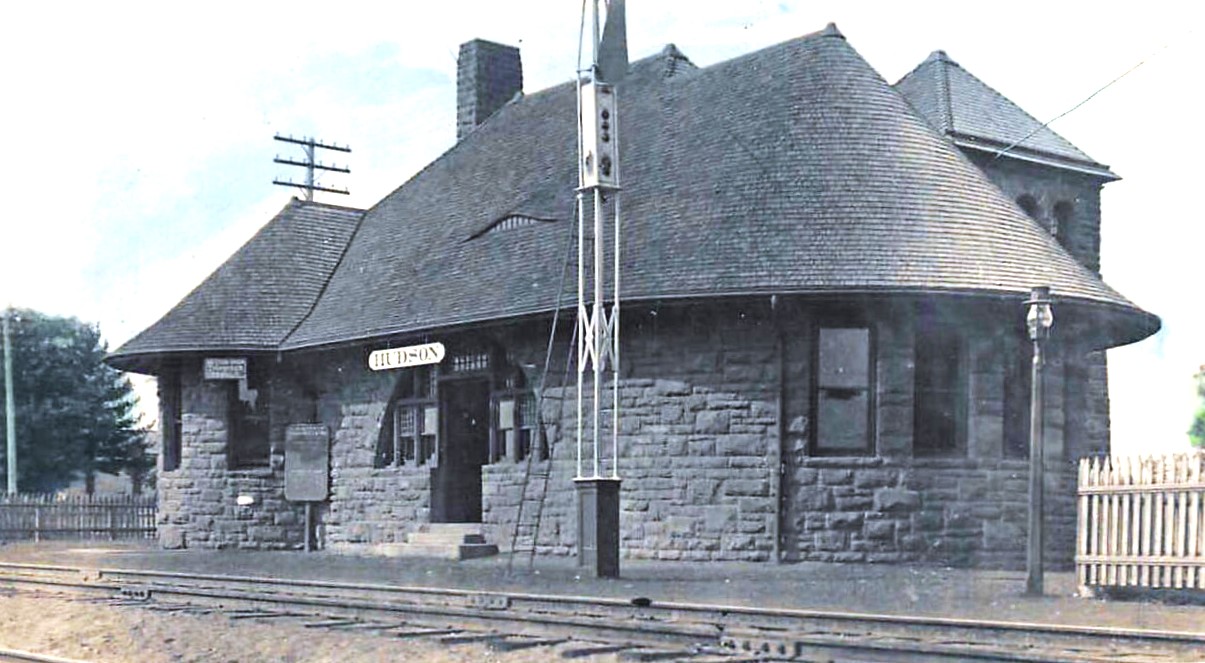
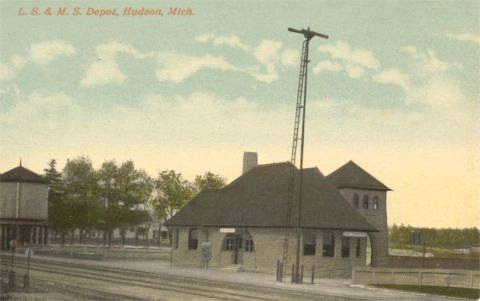
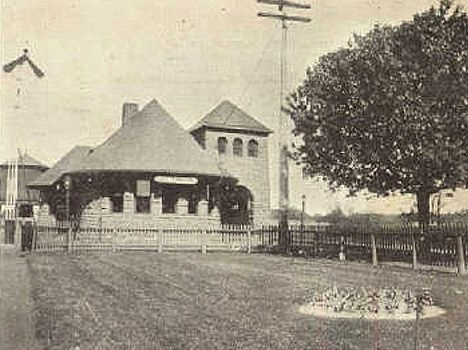
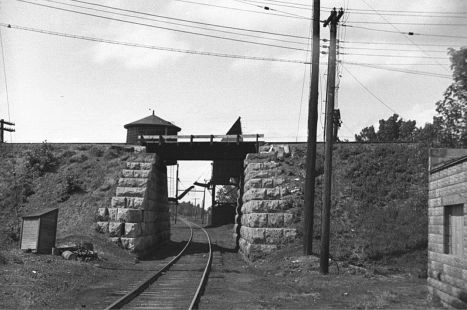
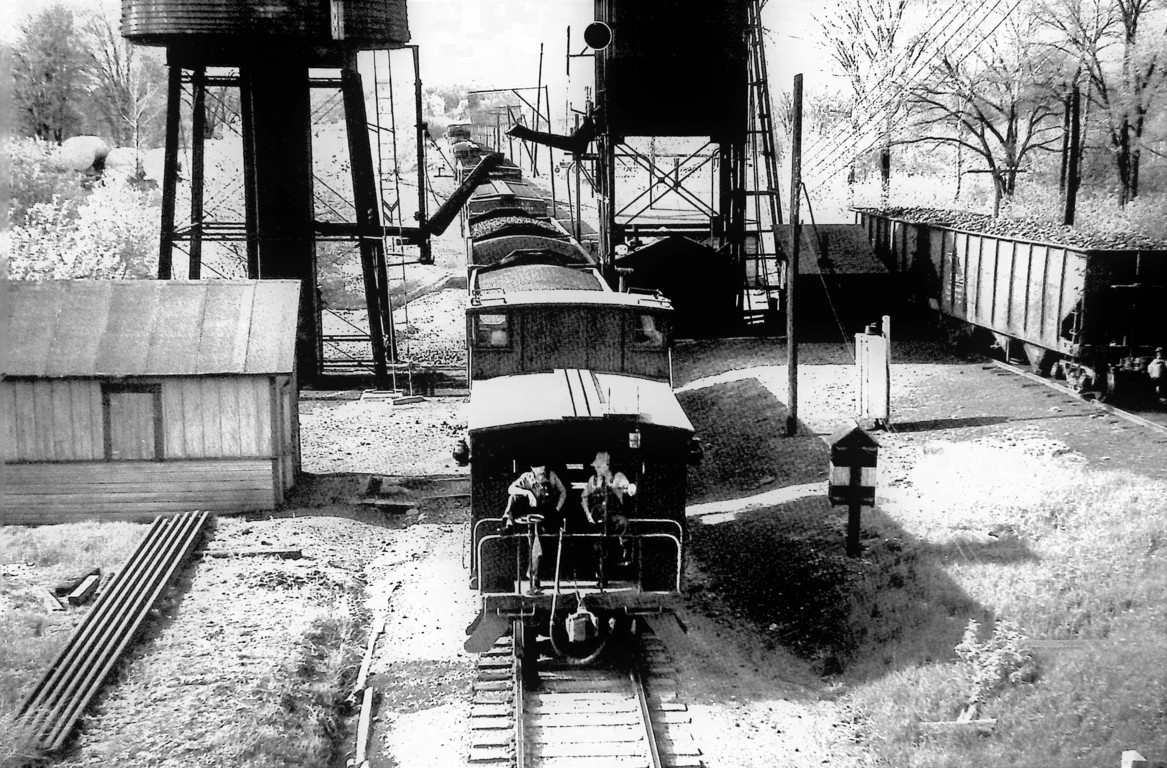
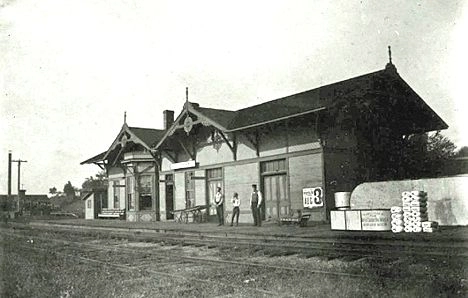
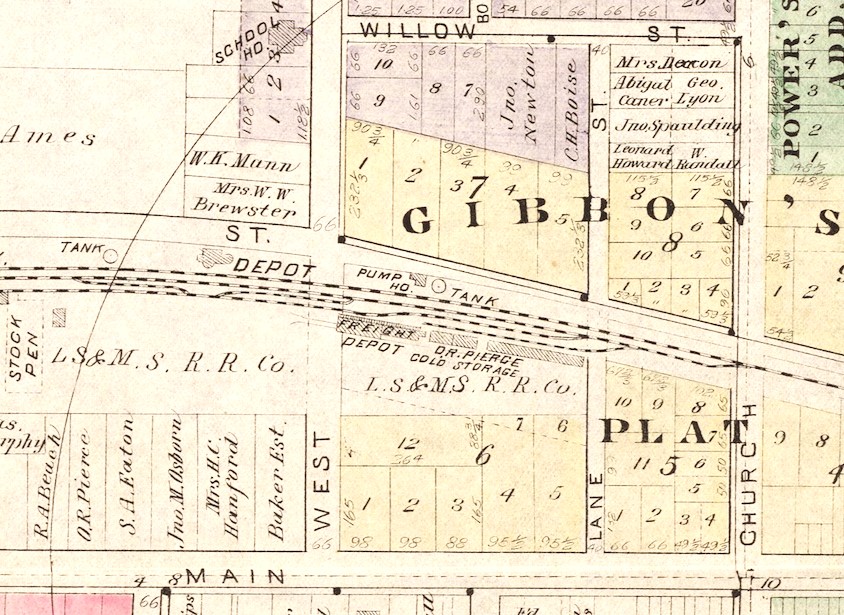 Hudson was settled on the very western edge of Lenawee County about 1833 and called Bean Creek. It was renamed Lanesville in 1836 and Hudson in 1840. The town became a village in 1853 and a city in 1893. [MPN]
Hudson was settled on the very western edge of Lenawee County about 1833 and called Bean Creek. It was renamed Lanesville in 1836 and Hudson in 1840. The town became a village in 1853 and a city in 1893. [MPN]
The "Southern" line of the State of Michigan came through here first and was purchased by the Michigan Southern railroad, a private interest. It later became the Michigan Southern & Northern Indiana, then the Lake Shore & Michigan Southern, and in 1916 it became part of the New York Central system. This line was known as "the Old Road". The Lake Shore established a beautiful stone depot here with conical roofs and a tower.
The north-south Cincinnati Northern had a small eight track yard here and also had water and coaling facilities for its locomotives. There was also a stock handling facility on the CN with capacity for four double deck stock cars. Stock could be fed and watered here.
The Cincinnati Northern came through later with its north-south route between Ohio and Jackson. It crossed under the LSMS using a narrow underpass (see photo). There apparently was never a physical connection between the two lines, both of which eventually fell under NYC control, though both railroads served an industrial facility in the southeast quadrant of their crossing.
Hudson had two water towers, one on the Old Road and one on the CN Jackson branch. The CN also had a coaling tower here.
Photo Info: Top, an early photo of the LSMS Old Road depot and water tower at Hudson. 2nd, an early view of the Lake Shore depot. 3rd photo, the LSMS depot in a postcard view. [Dale Berry collection]. 4th photo, the same depot in another view with the water tower. [Alan Loftis collection] 5th photo, the crossing of the two lines, CN below and LSMS on top. Note the CN coaling station and water tower in the background. [Doug Leffler collection] 6th photo, a northbound NYC train enroute to Jackson is at the Hudson water tower and coaling tower in the spring of 1950. [Jim Findlay photo, Doug Leffler collection]. 7th photo, the Cincinnati Northern depot at Hudson. [Alan Loftis collection]. 8th image, a 1893 map of the Lake Shore facilities at Hudson, before the CN came into town. Shown are the water tank, depot, pump house, a second tank, freight depot and cold storage building. [Lenawee Co. Atlas]
Notes
Time Line
1871. The Lake Shore builds a 60 foot stone arch bridge here over Bean Creek. [MCR-1872]
1909. The Cincinnati Northern builds a new coaling station at Hudson. The Michigan Railroad Commission also noted that the water closets at Hudson were in an unsanitary condition. [MCR-1909]
1914. August 6. Train Derailed North of Hudson, Deaths. Engineer A. L. Baldwin of Jackson was killed and Fireman Harry Randall of Van Wert, O., fatally injured Saturday afternoon when the "cannon ball" train on the Cincinnati Northern railroad left the track about two miles north of Hudson. The engine and tender were hurled from the track and overturned, while the rest of the train and two coaches remained upright but derailed.
Baldwin was flung from his cab into a nearby field and was picked up dead. Randall's collarbone was broken, and he was badly cut about the head. A broken rail is believed to have caused the accident. The engine was running backward, but at the head of the train, when the accident occurred. There were but four passengers aboard and these helped load the dead and injured trainmen in autos for Hudson. Engineer Baldwin was one of the oldest engineers in point of service on the Cincinnati Northern. He was 60 years old. Randall is 40. [Yale Expositor]
1922. November 2. CN Bridge at Hudson is Nearing Completion. The Cincinnati Northern railroad bridge over Bean Creek east of the water works station, which has been under construction since spring, is nearing completion. Contractors put in two cement piers, two abutments and sides of the bridge, and then the work was turned over the railroad for completion. As a covering for the piers, six great concrete slabs to span the opening from pier to pier were put into place by the largest railroad derrick available, the work being accomplished Saturday and Sunday. Each of the concrete slabs weight 40 tons and was reinforced with two tons of steel. The crevices between the slabs are now being filled with concrete, uniting the entire covering. The work will be completed with gravel, ballasting and laying of ties and rails. [Battle Creek Enquirer]
Industry
- Bean Chamberlain Manufacturing. Iron pumps and plows.(CN) 1893
- Cutler-Dickinson Company - 4,000 bushel capacity elevator (CN)
- Hackett Coal Company (CN)
- Hardie Manufacturing Company-sprayers, hand pumps, automobile engines (CN)
- Hazen Manufacturing Co. iron force & lift pumps (CN) 1919
- Helvetia Milk Processing Co. (CN) 1919
- Hudson Milling Co. (CN) 1919
- Hudson Water Works - Coal delivery (CN) - 1919
- J. H. Cruise Lumber and planing mill (LSMS) 1919
- Neptune Paint Co. (CN) 1919
- Pet Milk Company (CN)
- Porter Lumber Company (CN)
Bibliography
The following sources are utilized in this website. [SOURCE-YEAR-MMDD-PG]:
- [AAB| = All Aboard!, by Willis Dunbar, Eerdmans Publishing, Grand Rapids ©1969.
- [AAN] = Alpena Argus newspaper.
- [AARQJ] = American Association of Railroads Quiz Jr. pamphlet. © 1956
- [AATHA] = Ann Arbor Railroad Technical and Historical Association newsletter "The Double A"
- [AB] = Information provided at Michigan History Conference from Andrew Bailey, Port Huron, MI

